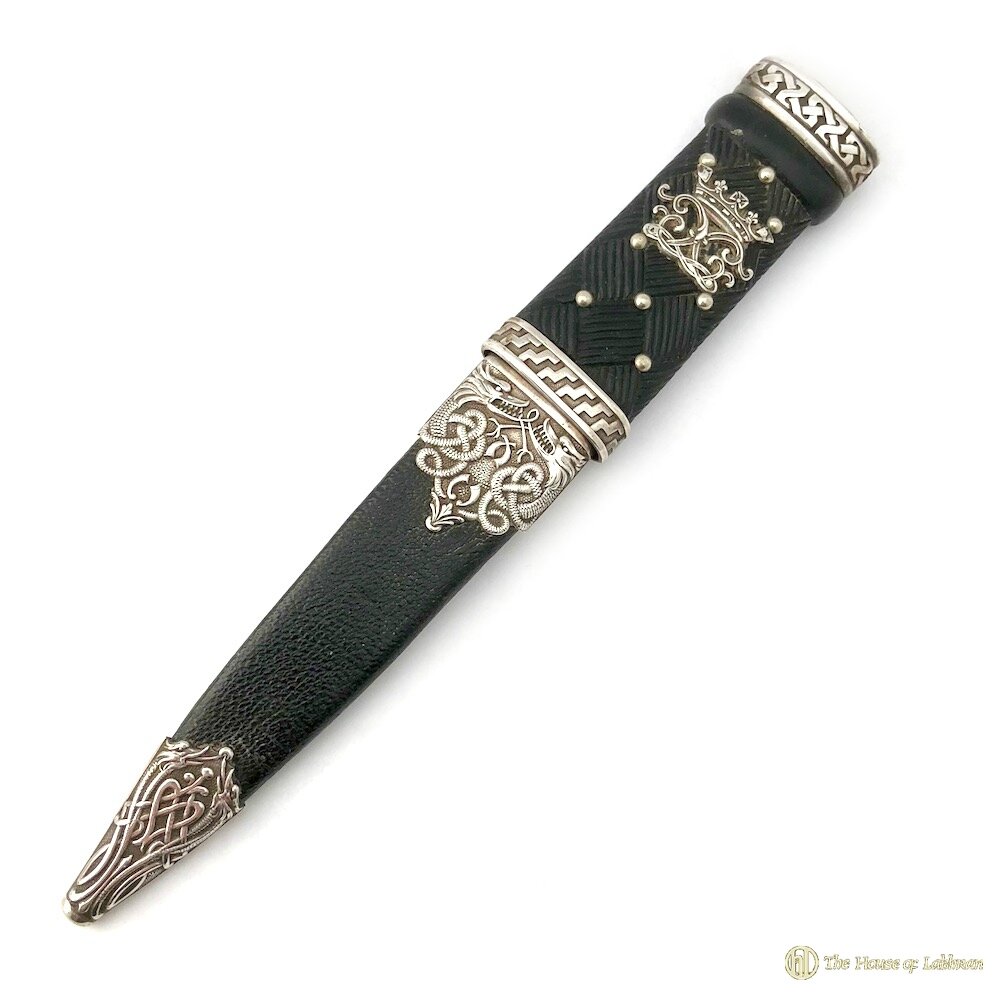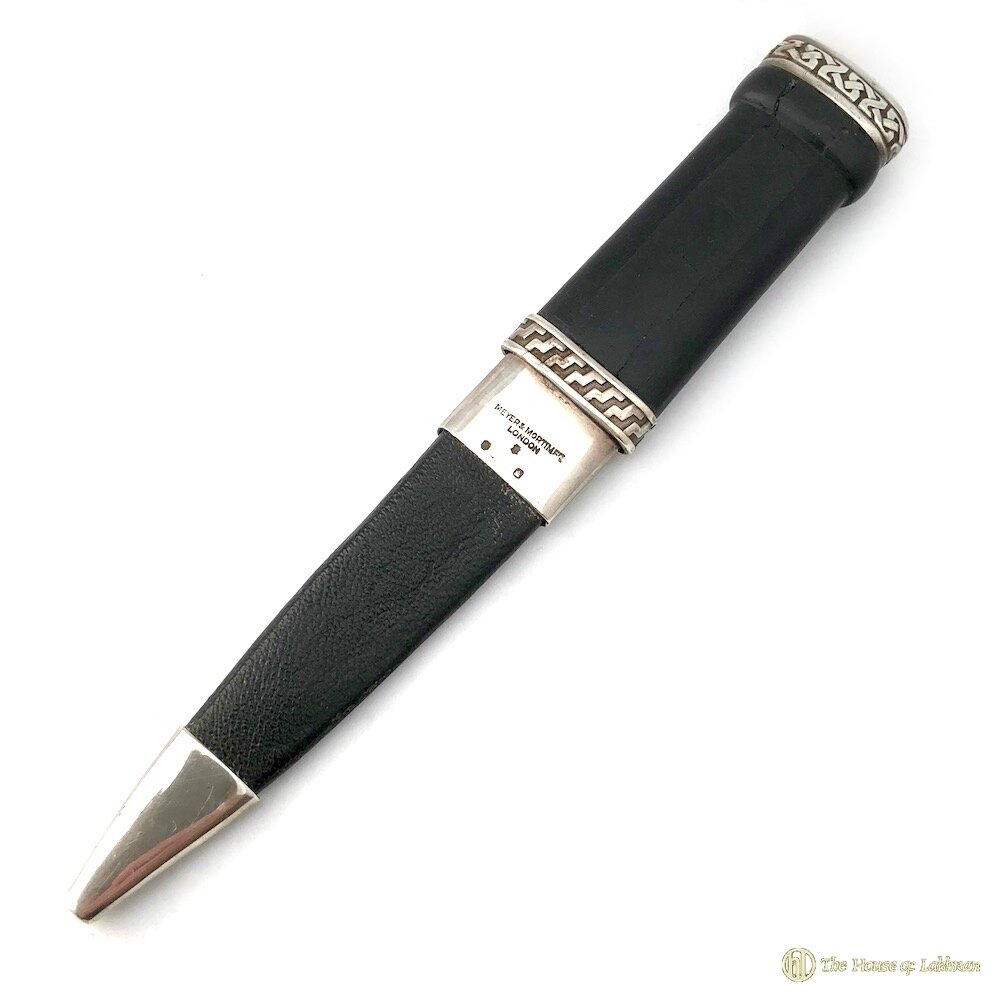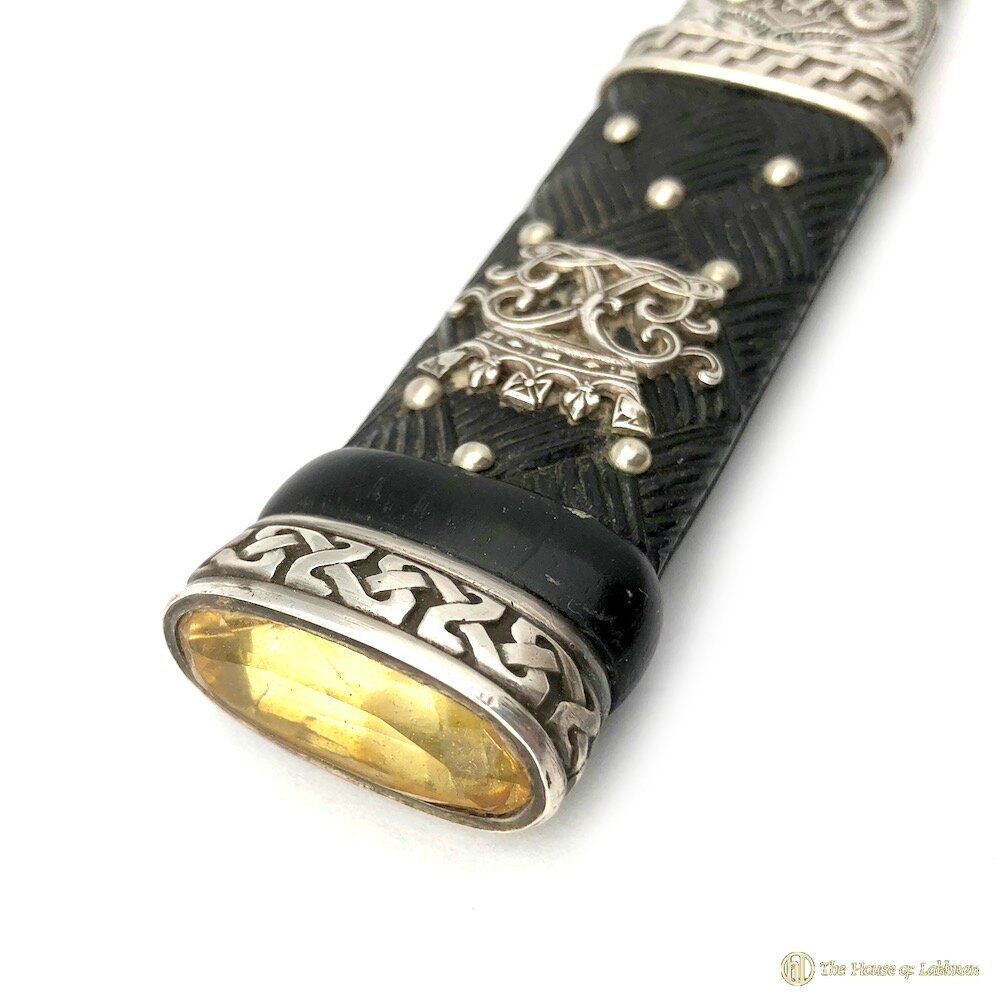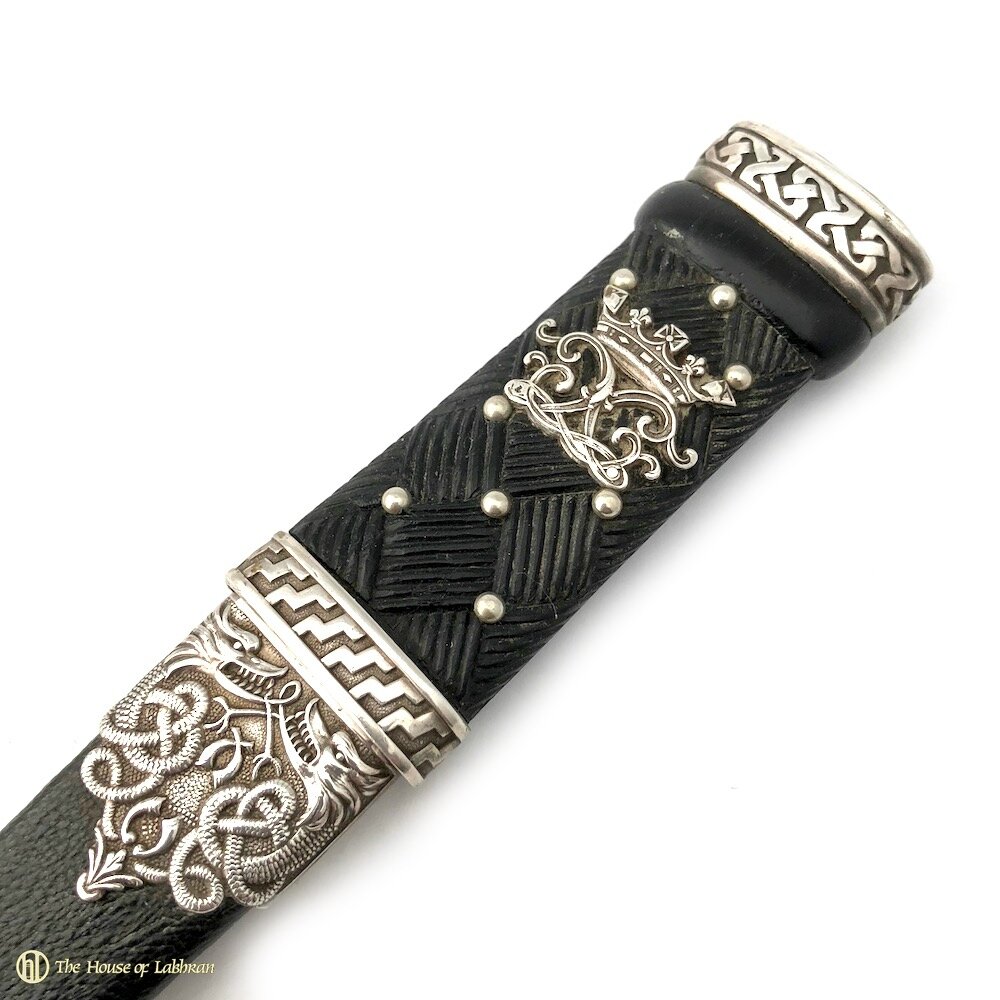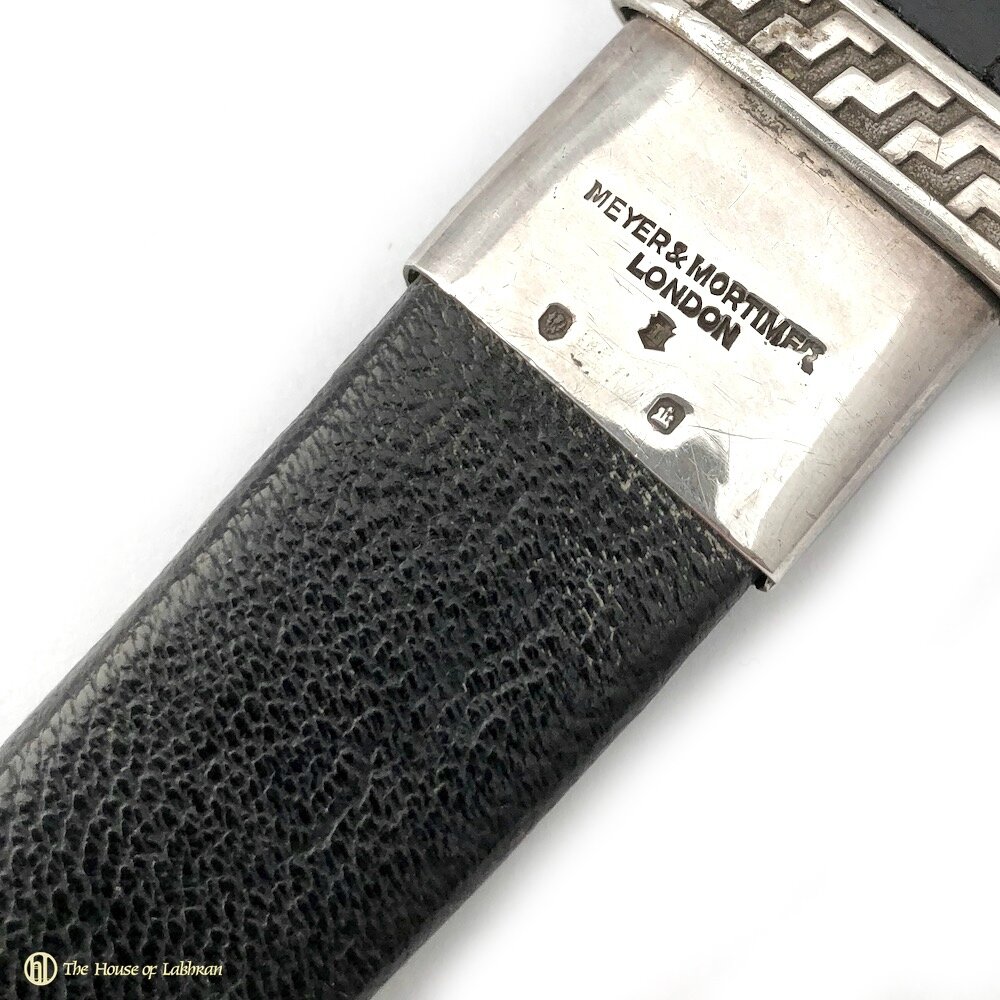WW1 Argyll & Sutherland Highlanders Officers Sgian Dubh
WW1 Antique Argyll & Sutherland Highlanders Officers Silver Sgian Dubh
A classic regimental Sgian Dubh in great used antique condition, showcasing timeless elegance. This piece is crafted in hallmarked sterling silver by the renowned makers Meyer & Mortimer of London, featuring the distinguished Edinburgh hallmark, adding to its historical allure.
A wonderful yellow citrine style stone is beautifully showcased on the carved blackwood hilt, elegantly mounted in silver. The fine curved blade is expertly designed to fit comfortably against the leg, making it not only a striking piece but also a practical one. This piece bears the prestigious Edinburgh silver hallmark of the year 1916, adding to its historical allure.
The Argyll and Sutherland Highlanders (Princess Louise’s) was a line infantry regiment of the British Army that existed from 1881 until amalgamation into the Royal Regiment of Scotland on 28 March 2006, from when it became a single battalion in the Royal Regiment of Scotland.
The regiment was created under the Childers Reforms in 1881, as the Princess Louise’s (Sutherland and Argyll Highlanders), by the amalgamation of the 91st (Argyllshire Highlanders) Regiment of Foot and 93rd (Sutherland Highlanders) Regiment of Foot, amended the following year to reverse the order of the “Argyll” and “Sutherland” subtitles.
The Argyll and Sutherland Highlanders was expanded to fifteen battalions during the First World War 1 (1914–1918) and nine during the Second World War 2 (1939–1945).
The Gaelic sgian dubh meaning “black knife”, where “black” may refer to the usual colour of the handle of the knife. It is also suggested that “black” means secret, or hidden, as in the word blackmail. This is based on the stories and theories surrounding the knife’s origin and the meaning of “Dubh” in Gaelic, in particular those associated with the Highland custom of depositing weapons at the entrance to a house prior to entering as a guest. Despite this practice, a small twin edged-dagger, (‘Mattucashlass’), concealed under the armpit, combined with a smaller knife, (‘Sgian dubh’).


